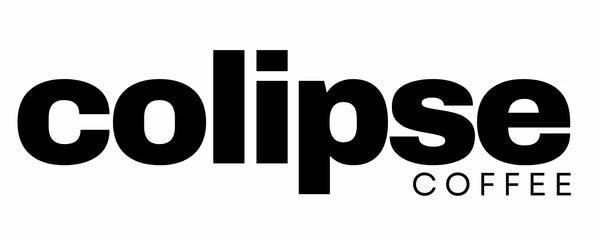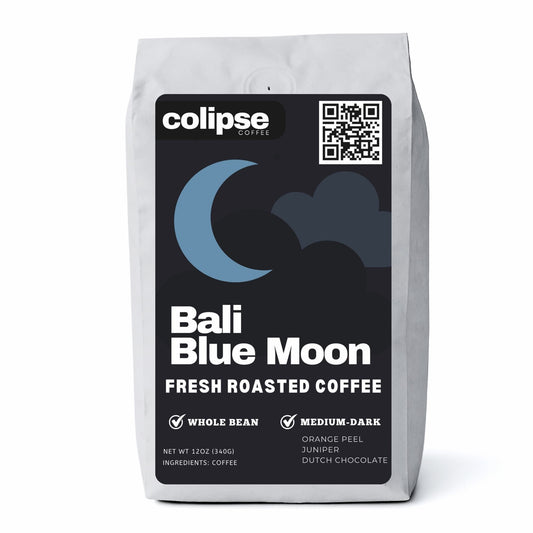Nicaragua Jinotega Coffee Beans
Nicaragua Jinotega Coffee Beans
Couldn't load pickup availability
Colipse Nicaraguan coffee beans are a medium roast, single-origin Arabica coffee that delivers hazelnut, molasses, dark chocolate, graham cracker, and citrus notes. The beans are sourced from COMULFAC, a Fair Trade Organic–certified cooperative of family farms that process their coffee using on-site micro-mills. The coffee is hand-harvested and wet-processed, ideal for those looking for tasty coffee without bitter taste. Wet processing removes the cherry pulp, followed by fermentation and washing of the seeds to release natural sugars.
Colipse Nicaraguan coffee is available as whole beans, ideal for super-automatic bean-to-cup machines, semi-automatic espresso machines, and home grinding. Alternatively, choose from pre-ground coarse, medium, or fine grinds for steeping, automatic drip brewing, and stovetop brewing. Coffee is available in 12 oz, 16 oz, 2 lb, and 5 lb bags, always roasted to order and vacuum-sealed in recyclable packaging for peak freshness. Order Colipse Nicaraguan coffee beans today and upgrade your coffee routine.
Product Description
Product Description
- Roast Level: Medium
- Origin: Jinotega, Nicaragua – renowned for high-elevation, organic coffee farming.
- Altitude: 1,000–1,400 meters above sea level.
- Varietals: Caturra, Catuai, Bourbon, Catimor, and Maragogype.
- Harvesting Method: Selectively hand-harvested by smallholder farmers.
- Processing Method: Fully washed (wet-processed) and sun-dried using on-site micro-mills.
- Traceability: Fully traceable to the COMULFAC cooperative of family-owned farms.
- Supply Chain: Transparent, direct-trade style sourcing through Fair Trade Organic partnerships.
- Farmers/Cooperatives: Grown by COMULFAC (Cooperativa Multifuncional Family Coffee R.L.), a certified Fair Trade Organic farming cooperative.
Flavor Profile
Flavor Profile
Naturally sweet Latin American coffee beans with a medium acidity, with hazelnut, molasses, chocolate, graham cracker, and citrus flavors. The medium body balances the mouthfeel, and the complex aroma enhances the drinking experience.
- Acidity: Medium – crisp and balanced with a bright citrus lift.
- Flavor Notes: Hazelnut, molasses, dark chocolate, graham cracker, and citrus.
- Body: Medium-bodied with a smooth, clean mouthfeel.
- Aroma: Rich and warm, featuring nutty sweetness and a touch of cocoa.
- Sweetness: Noticeably sweet, thanks to the washed process and high-altitude growth.
- Bitterness: Low bitterness, expertly balanced by natural sweetness and acidity.
- Aftertaste: Clean and slightly lingering with notes of chocolate and citrus zest.
- Cup Clarity: Excellent clarity – flavors are distinct and easy to identify.
- Transparency: High transparency; flavor notes are well-pronounced and easy to differentiate.
- Complexity: Medium-high; layers of sweetness, nuttiness, and citrus make for a dynamic, engaging cup.
Delivery & Packaging
Delivery & Packaging
Free U.S. delivery on all online orders of Nicaraguan coffee beans.
Roasted fresh upon order placement. Immediately vacuum-sealed in a high-barrier, recyclable bag (multi-layer film, CO2 valve, expandable base) protecting from light, moisture, oxygen. Sent within 3-5 business days via USPS, UPS, or FedEx using recyclable packaging.
How to Make
How to Make
Use 18 grams of finely ground Nicaraguan coffee beans in your semi-automatic espresso machine with a built-in grinder, tamp evenly, and brew with a 1:2 coffee-to-water ratio for a smooth, rich shot. Extract for 25-30 seconds to achieve a full-bodied espresso. To make Nicaraguan coffee without a machine, use methods like a French press. Grind the beans coarsely, steep for 4 minutes, and press for a flavorful, full-bodied cup.
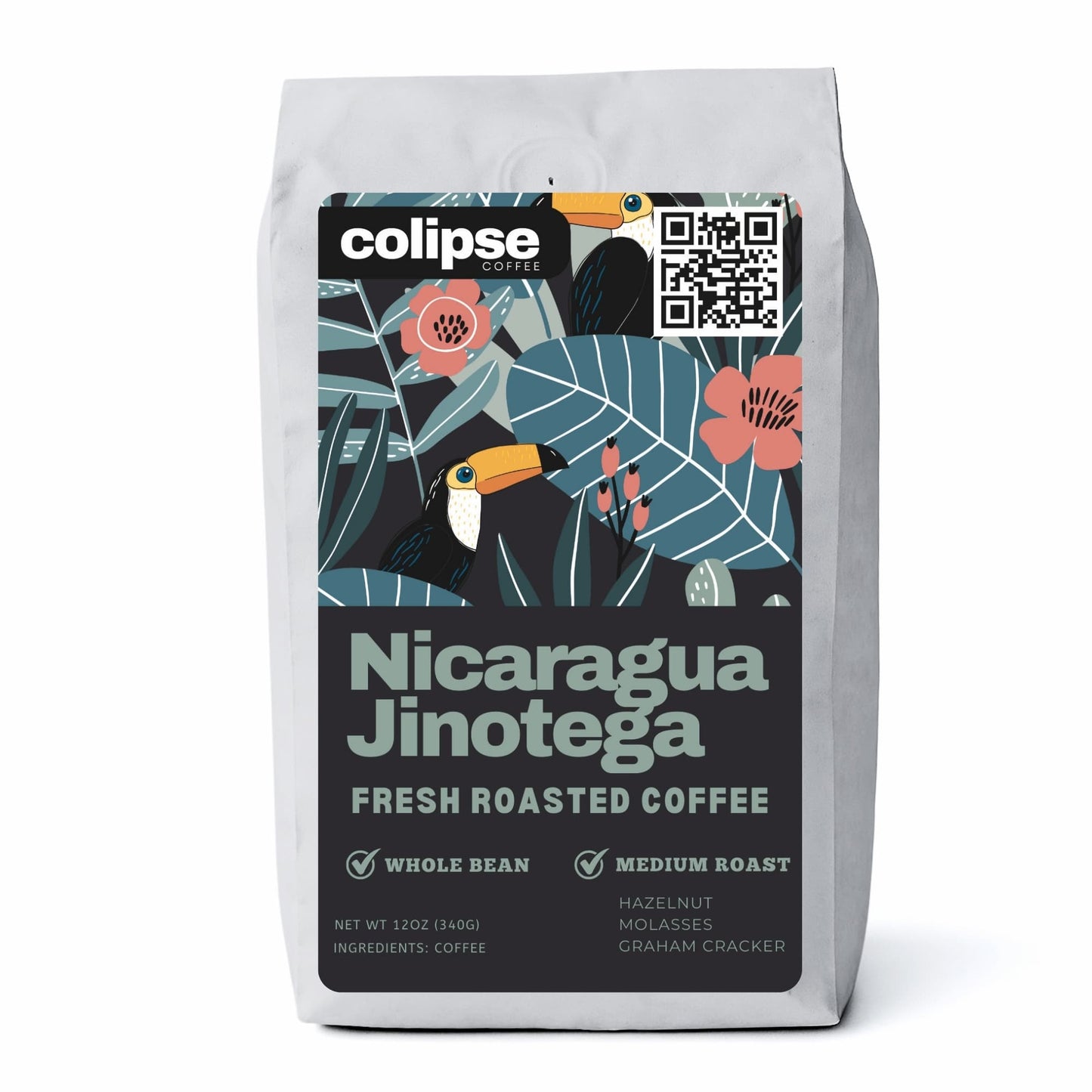
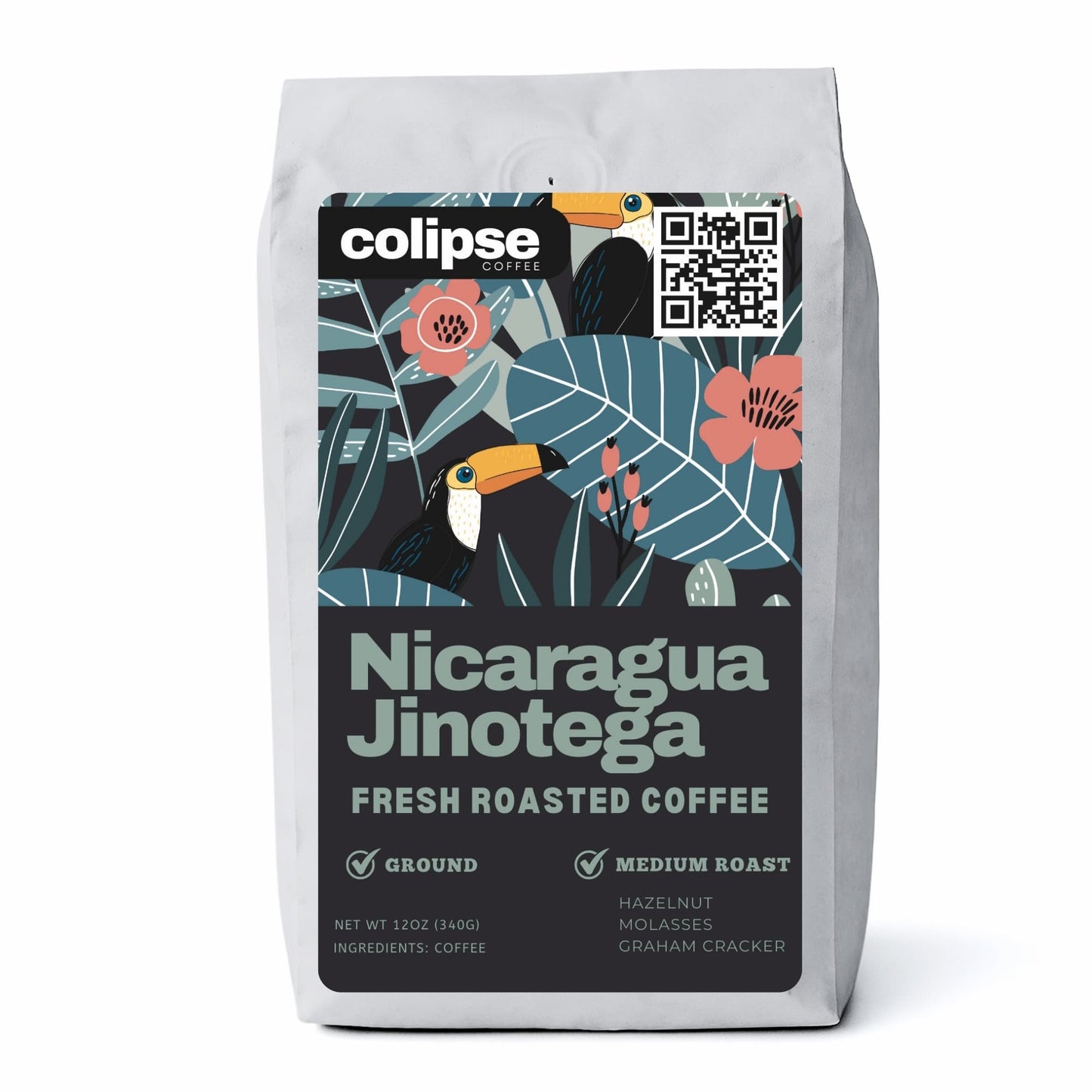
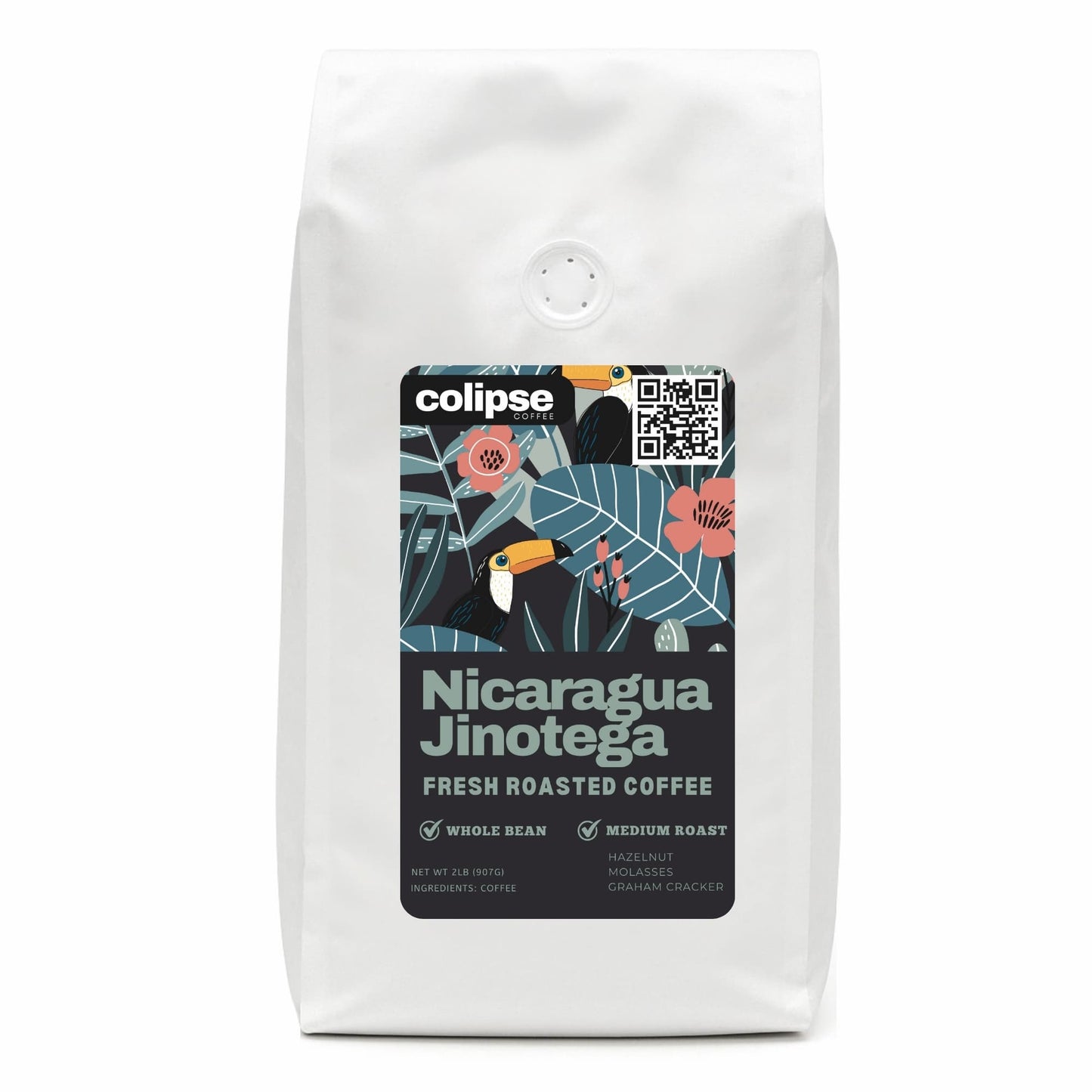
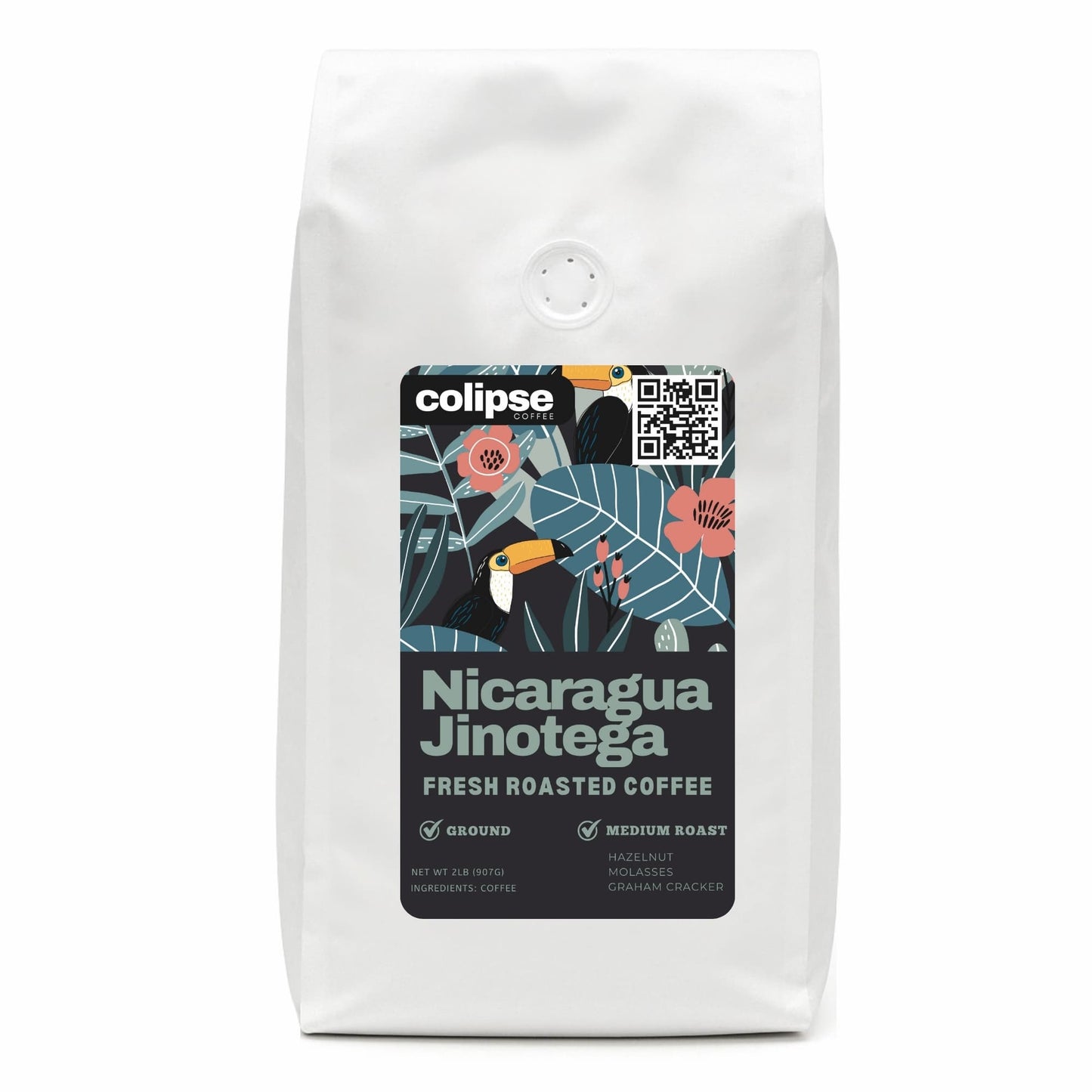
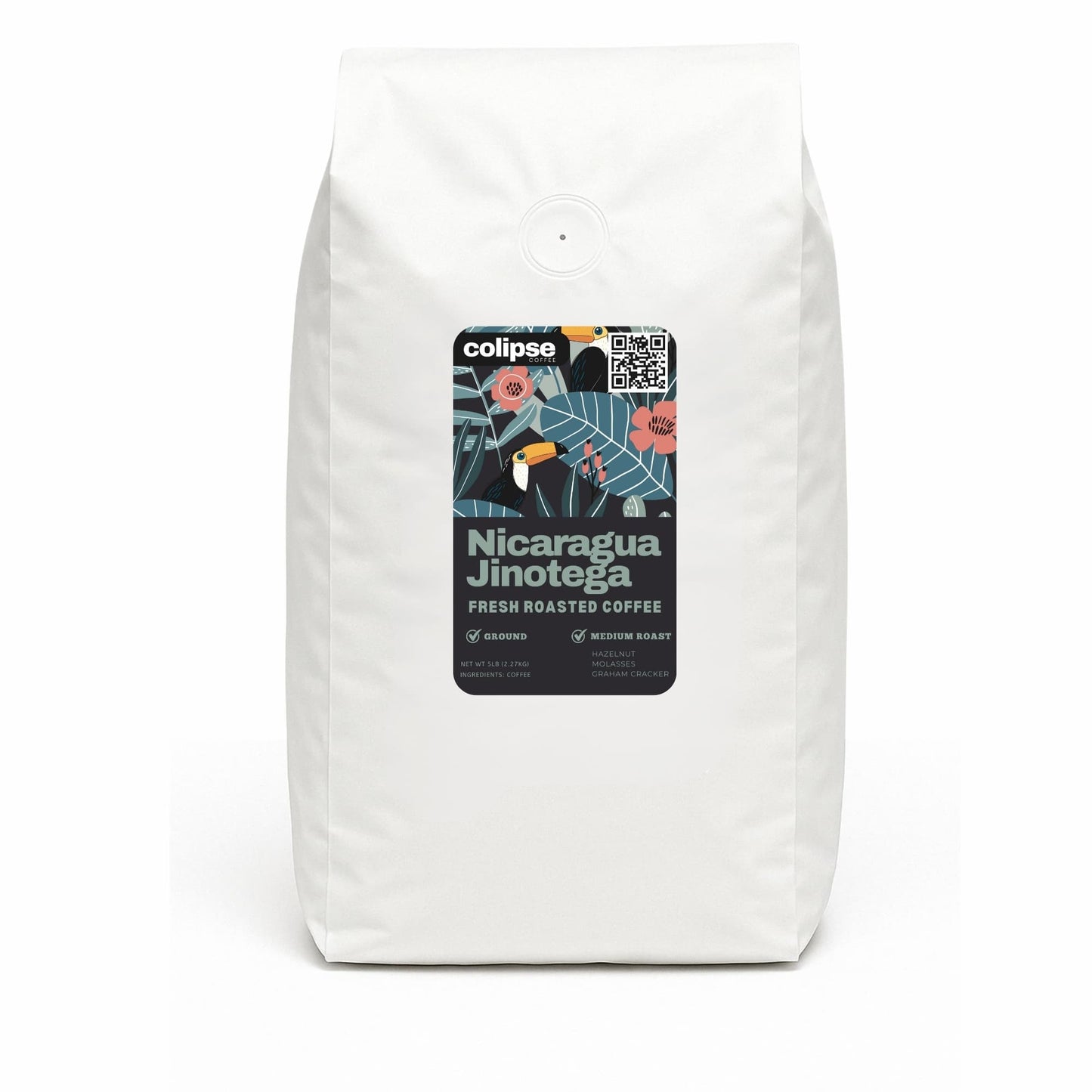
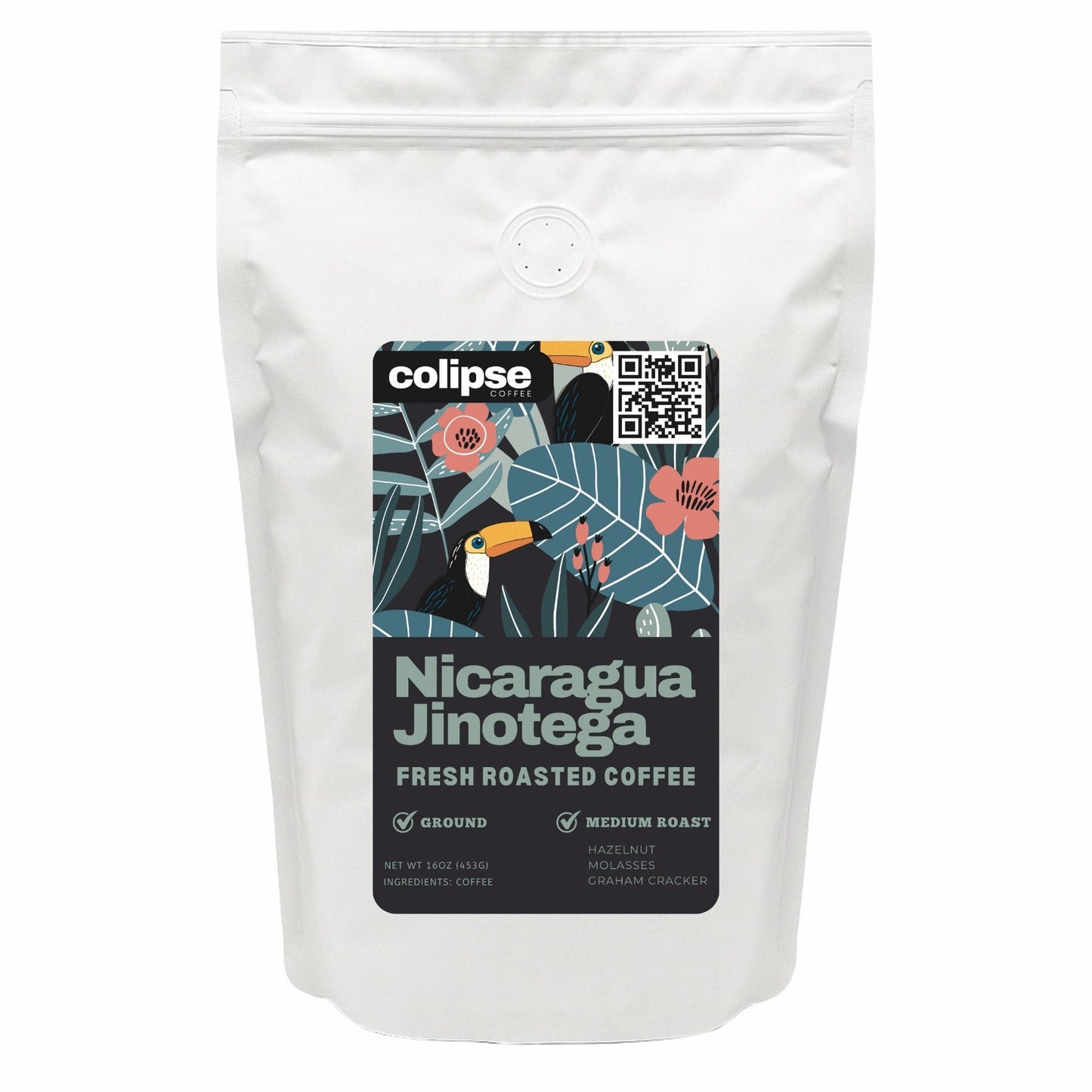
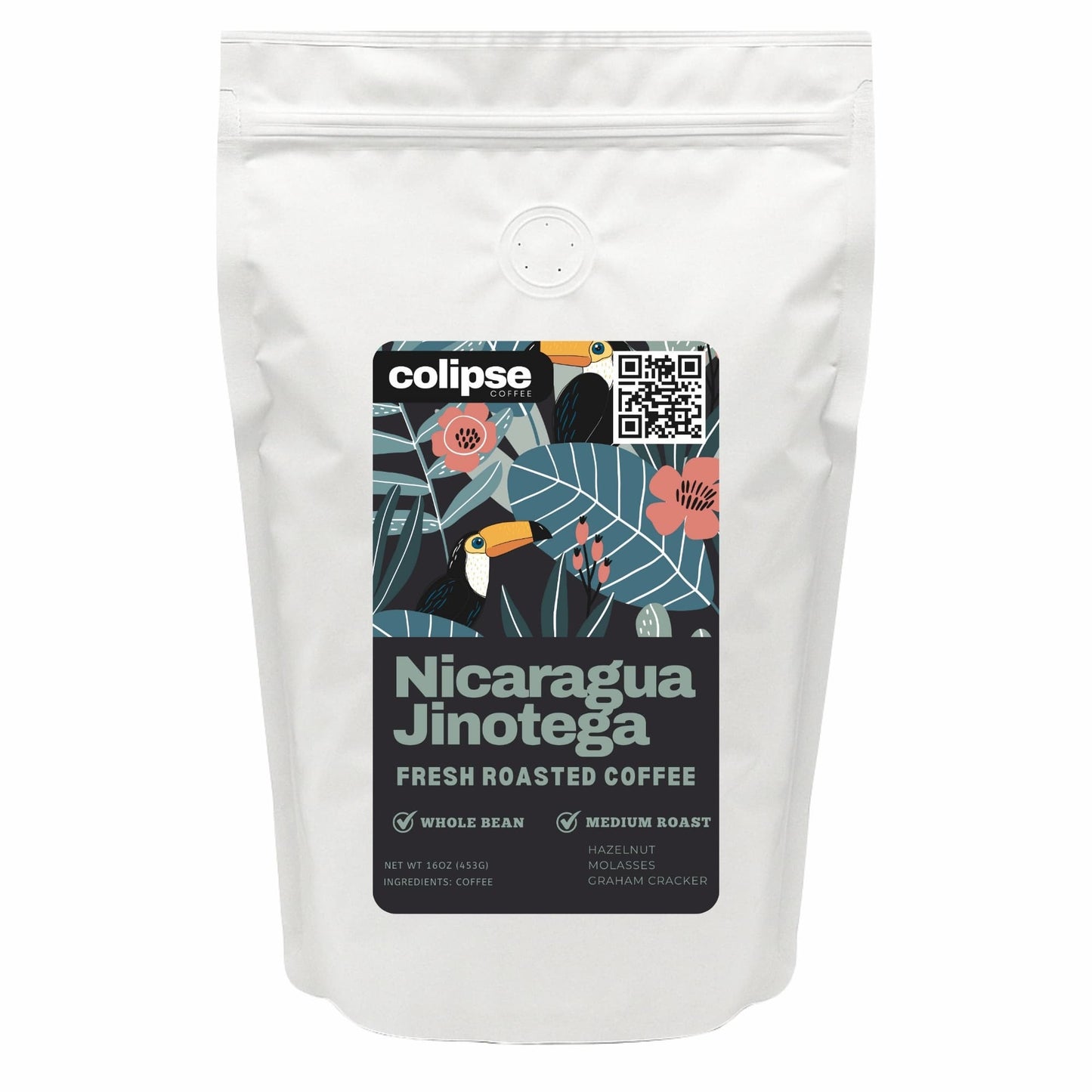
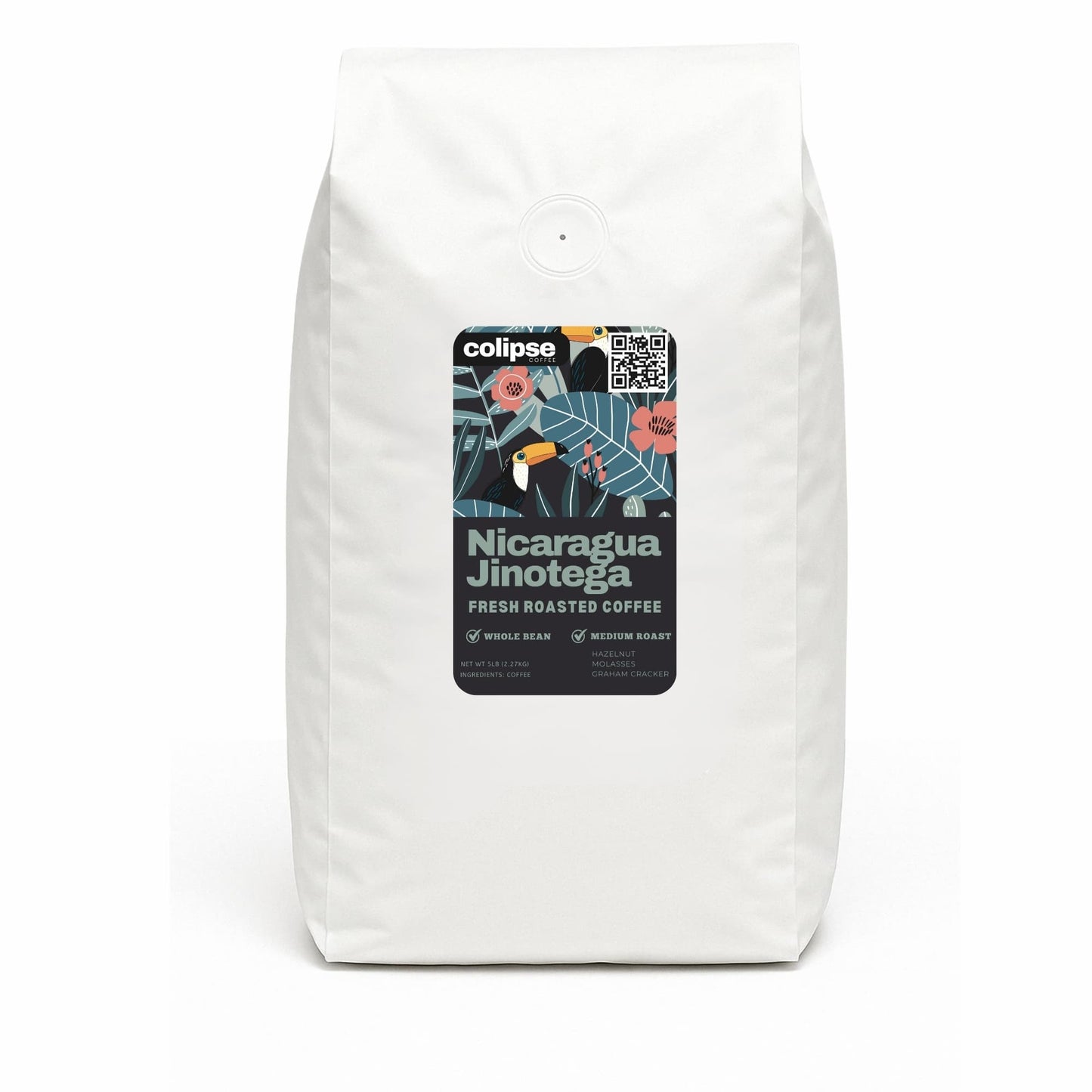
You May Also Like
-
Bali Blue Moon Coffee
Regular price From $21.99 USDRegular priceUnit price / per$27.99 USDSale price From $21.99 USDSale -
100% Cherry Robusta Coffee Beans
Regular price From $21.99 USDRegular priceUnit price / per$24.50 USDSale price From $21.99 USDSale -
Colombian Coffee Beans
Regular price From $23.50 USDRegular priceUnit price / per$27.99 USDSale price From $23.50 USDSale
Frequently Asked Questions
Where to buy Nicaraguan coffee beans?
Purchase Nicaraguan coffee beans via Colipse's online store and access discounts, sales, choices in grind size, bulk quantities, and subscription plans, all while benefiting from prices competitive with Verve, Blue Bottle, and Onyx.
How should I store Nicaraguan coffee beans?
Store the beans in an airtight container in a cool, dry place, away from light and heat. For best flavor, consume within one month of opening.
What are the best ways to brew Nicaraguan coffee beans?
Use these beans for espresso-based drinks like cappuccinos, lattes, macchiatos, Americanos, or cortados. Their medium roast profile pulls a smooth, flavorful shot with balanced sweetness and body.
